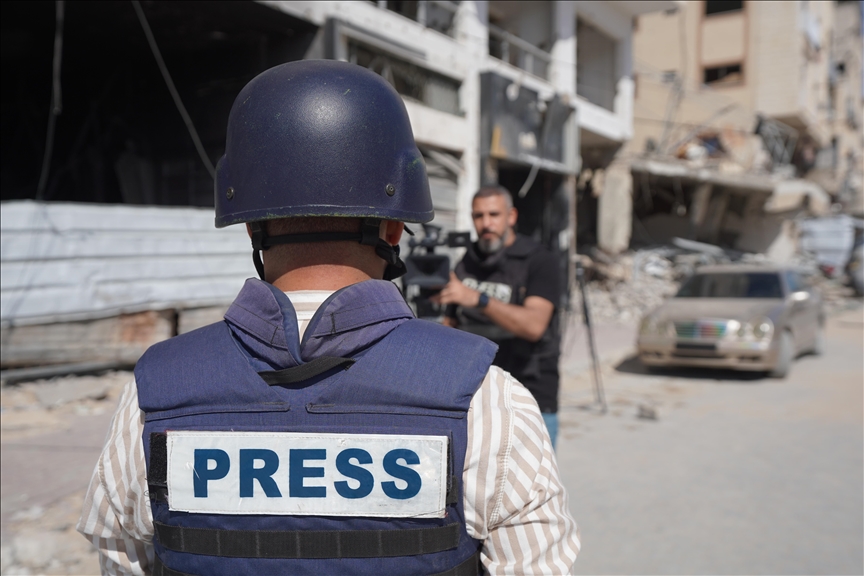AFP journalists in Gaza at risk of starvation, warns journalists' association
'We have lost journalists in conflicts, we have had wounded, prisoners in our ranks, but none of us can recall seeing colleague die of hunger,' says French news agency's journalists' association
 Gaza journalists
Gaza journalists
LONDON
The AFP journalists’ association on Monday warned that journalists working with the news agency in the Gaza Strip are facing extreme food shortages and risk starving amid the ongoing Israeli blockade of aid delivery and strikes.
Issuing a stark warning, the SDJ, the French news agency's journalists' association, said that they refuse to let their staff see them die.
"Since AFP was founded in August 1944, we have lost journalists in conflicts, we have had wounded and prisoners in our ranks, but none of us can recall seeing a colleague die of hunger," the association said in a post on X, sharing the statement.
In the statement, the SDJ noted that the AFP has been working with a freelance reporter, three photographers, and six freelance video journalists in the Gaza Strip.
Naming one of them, Bashar Taleb, who is working for the agency as a photographer, the union shared his social media post, showing grave conditions in the besieged enclave.
"I don't have the power to cover media anymore. My body is lean and I no longer have the ability to walk," Taleb, 30, wrote in a Facebook post on Saturday.
He also said that his older brother fell on Sunday morning from the severity of hunger.
According to the union's statement, despite receiving a monthly salary, AFP journalists in Gaza have nothing to buy or pay exorbitant prices.
Saying that the agency no longer has the resources to own a vehicle because there is far less fuel to allow its journalists to travel for their reports.
They noted that traveling by car is tantamount to running the risk of being a target for the Israeli air force.
Also mentioning Ahlam, another AFP journalist, the union said she wants to "bear witness" for as long as possible.
"Every time I leave the tent to cover an event, conduct an interview, or document a fact, I don't know if I'll come back alive," said Ahlam, who noted that lack of food and water is the biggest problem.
Expressing concern over their worsening situation, the union said their courage, which they devoted for many months to informing the entire world, "will not help them survive."
"We risk learning of their deaths at any moment, and this is unbearable," the statement added.
Since March 2, Israel has enforced a total blockade on Gaza, barring entry of food, medicine, and humanitarian aid. Aid agencies have repeatedly warned of a man-made famine, with no sign of easing.
Rejecting international calls for a ceasefire, the Israeli army has pursued a brutal offensive on Gaza since Oct. 7, 2023, killing more than 59,000 Palestinians, most of them women and children. The relentless bombardment has destroyed the enclave and led to food shortages and a spread of disease.
Last November, the International Criminal Court issued arrest warrants for Israeli Prime Minister Benjamin Netanyahu and his former Defense Minister Yoav Gallant for war crimes and crimes against humanity in Gaza.
Israel also faces a genocide case at the International Court of Justice for its war on the enclave.
Anadolu Agency website contains only a portion of the news stories offered to subscribers in the AA News Broadcasting System (HAS), and in summarized form. Please contact us for subscription options.







